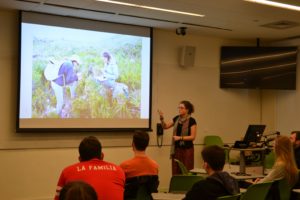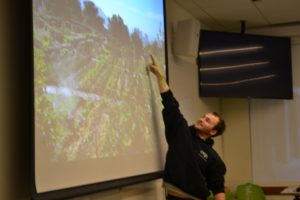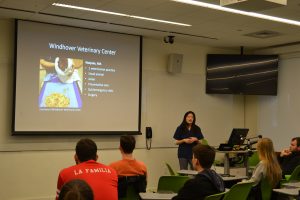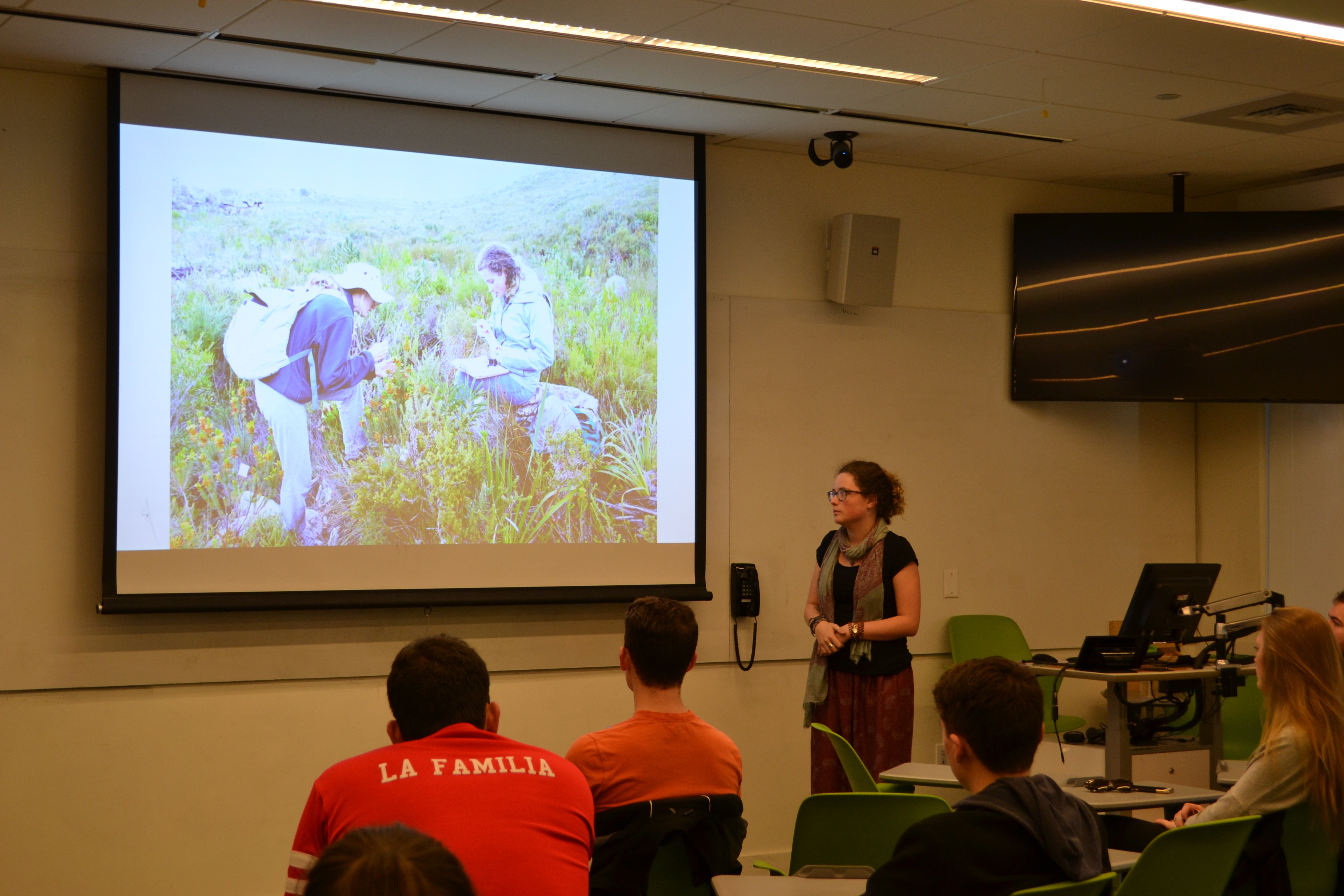When Sophie Chaney went on her second co-op, she got in touch with a team of researchers, set up her own housing, and set off on an adventure of a lifetime.
The fourth year biology student spent last spring in South Africa researching pollinators like bees, butterflies, moths, and other flying insects.

Sophie Chaney shows pictures from her co-op in South Africa.
She had already had one co-op at which she worked exclusively with bees — at Best Bees in Boston’s South End. But this time, Chaney knew she wanted to spread her wings and conduct research globally.
“Start early, think about visas and housing, and look to providers in the region for guidance,” she told fellow biology students recently during a class taught by Veronica Porter, Associate Professor and Co-op Coordinator in the College of Science.
Kevin Freeman also ended up in South Africa for his co-op this past spring – though for him it was his first co-op.
“It was a little overwhelming,” he told the group. But he is glad he did it, adding he learned a lot while he was there.

Kevin Freeman points out some of the crops on the farm where he worked in South Africa.
But good experiences and learning a lot doesn’t require a global co-op. Samantha Yao is a fifth year pre-vet student and has all three co-ops, all in Massachusetts.

Samantha Yao had three co-ops, all at veterinary clinics in Massachusetts.
The aspiring veterinarian focused her co-ops on learning as much about animals as possible. She says she wouldn’t change a thing about her experience.

